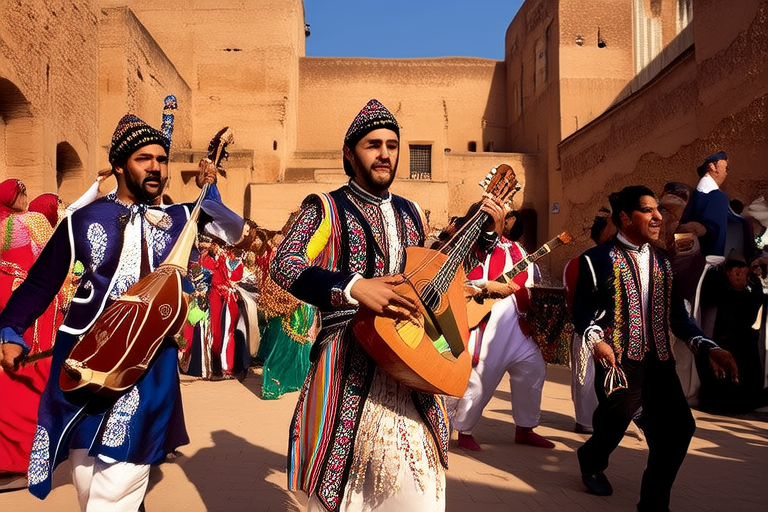The Role of Festivals in Shaping Cultural Identities Across Continents

The Role of Festivals in Shaping Cultural Identities Across Continents
Introduction
Festivals play a pivotal role in the cultural fabric of societies around the world. These vibrant celebrations are not merely occasions for revelry; they are essential platforms for the preservation and evolution of cultural identities. From the colorful Holi in India to the grand Carnival in Brazil, festivals offer a window into the rich tapestry of human traditions. They serve as communal events where people come together to honor their heritage, celebrate their uniqueness, and forge connections with others.
This article delves into the multifaceted role of festivals in shaping cultural identities across continents. We will explore their historical roots, their significance in cultural preservation, and how they have adapted to modern times. Additionally, we will examine the global influence of festivals and their economic impact on local communities.
Historical Context
The origins of festivals can be traced back to ancient civilizations, where they served religious, agricultural, and social functions. For instance, the Roman Saturnalia was a week-long festival dedicated to Saturn, the god of agriculture, which marked the winter solstice. Similarly, the ancient Greeks celebrated Dionysia, a festival honoring Dionysus, the god of wine and fertility. These early festivals were not just celebrations but also rites of passage that helped define societal roles and responsibilities.
Over time, festivals have evolved to reflect changing societal norms and technological advancements. Many traditional festivals have adapted to modern times, incorporating new elements while retaining their core values. For example, the Chinese New Year, now celebrated globally, has embraced digital innovations such as virtual fireworks displays and online gatherings.
Cultural Preservation
Festivals act as vital platforms for preserving traditional practices, arts, and crafts. During Diwali, the Festival of Lights in India, artisans showcase intricate designs in rangoli, a form of decorative art made from colored powders. In Mexico, the Day of the Dead (Día de los Muertos) features elaborate altars adorned with marigolds, sugar skulls, and favorite foods of deceased loved ones. These practices help maintain a connection to the past and ensure that cultural knowledge is passed down to younger generations.
Festivals also play a crucial role in maintaining community bonds and shared heritage. Events like the Oktoberfest in Germany bring together locals and tourists alike, fostering a sense of unity and belonging. Similarly, the Mardi Gras in New Orleans creates a unique cultural experience that strengthens community ties.
Cultural Evolution
While festivals preserve cultural traditions, they also adapt to modern times, fostering innovation within cultural expressions. Contemporary festivals often blend tradition with modern elements, creating a dynamic fusion of old and new. For example, the Rio Carnival in Brazil incorporates cutting-edge technology in its parade floats and performances, while still honoring its rich Afro-Brazilian heritage.
These adaptations allow festivals to remain relevant and engaging for younger generations. By embracing change, festivals can continue to evolve and thrive, ensuring that cultural identities remain vibrant and alive.
Global Influence
Festivals have a profound impact on cross-cultural understanding and exchange. International festivals like the Edinburgh Fringe Festival in Scotland attract performers and audiences from around the world, promoting a global dialogue through the arts. Similarly, the Glastonbury Festival in the UK showcases diverse musical acts, fostering a spirit of unity and celebration.
Globalization has both influenced and been influenced by local festivals. While some festivals have expanded their reach through media and travel, others have faced challenges in maintaining their authenticity. Nevertheless, many festivals have successfully navigated this dual challenge, blending local traditions with global influences to create unique cultural experiences.
Economic Impact
Festivals have significant economic benefits for their host communities. Major festivals can attract thousands of visitors, boosting local businesses, hotels, and restaurants. For example, the Coachella Valley Music and Arts Festival in California generates millions of dollars in revenue annually. According to a report, the event contributes approximately $365 million to the local economy.
Tourism is heavily influenced by major festivals, with many travelers planning trips specifically to attend them. This influx of tourists not only supports local businesses but also helps raise awareness about the host region’s culture and attractions. As a result, festivals play a crucial role in promoting sustainable tourism and economic development.
Conclusion
In conclusion, festivals are indispensable in shaping cultural identities across continents. From their historical origins to their modern adaptations, festivals serve as powerful vehicles for preserving traditions, fostering innovation, and promoting cross-cultural understanding. They bring communities together, strengthen bonds, and celebrate shared heritage. As we look to the future, it is clear that festivals will continue to play a vital role in shaping cultural identities and enriching our global society.
We encourage readers to participate in or learn more about festivals to appreciate their profound impact on cultural identity. Whether you’re attending a local fair or exploring a distant land’s traditions, every festival offers a unique opportunity to connect with the world around us.